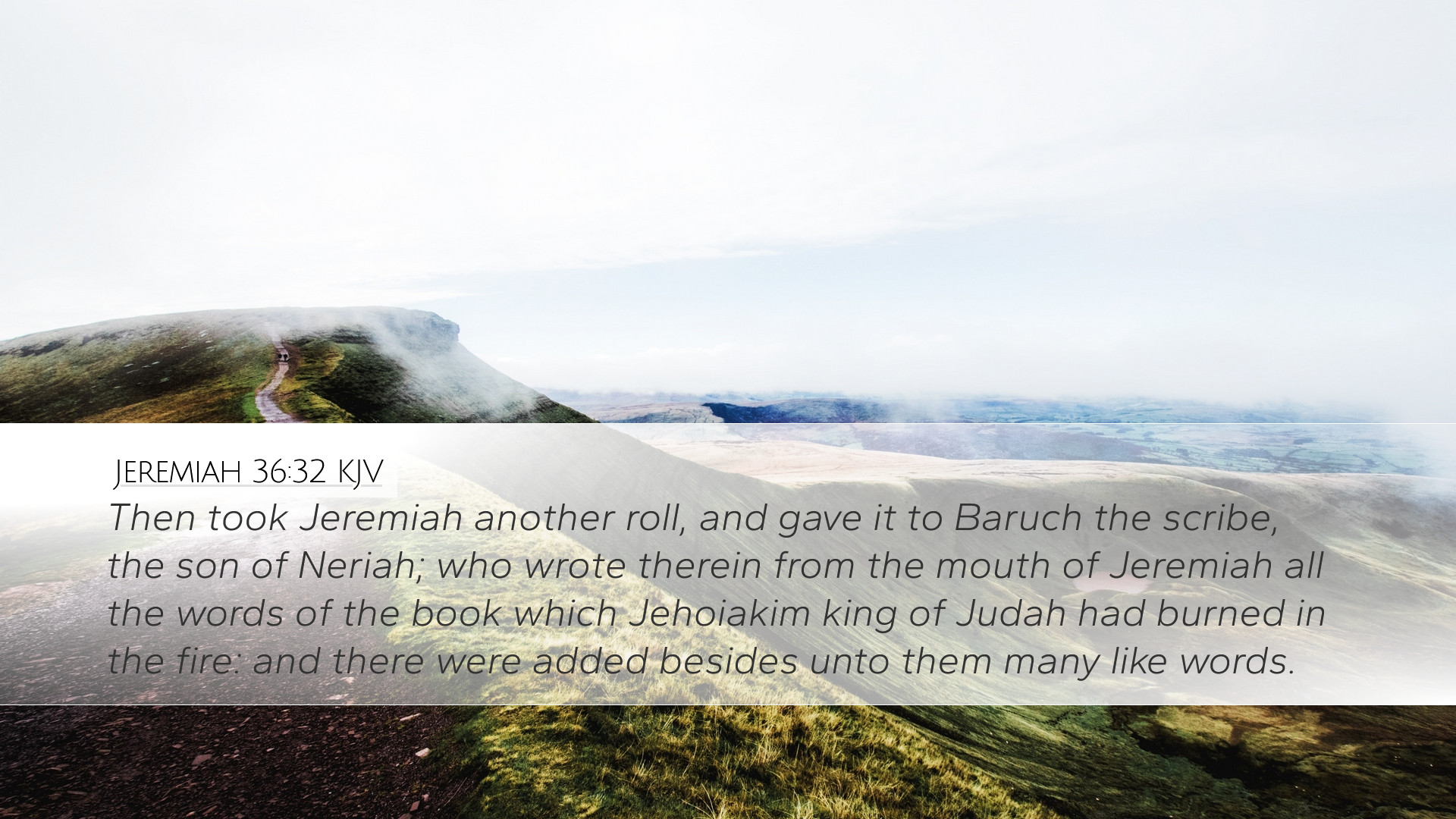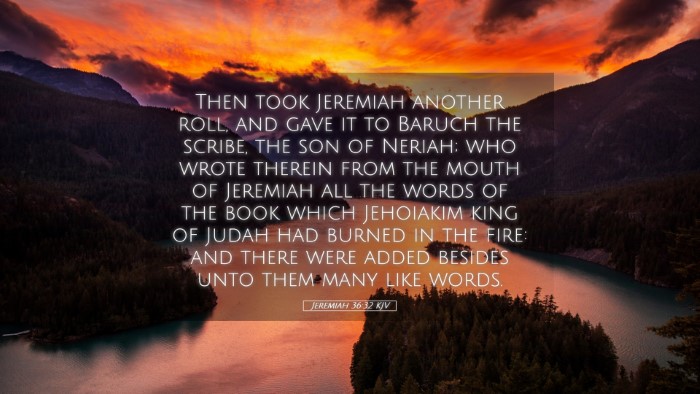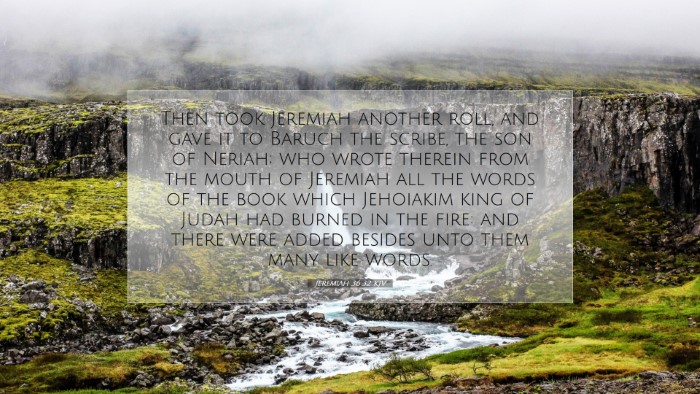Commentary on Jeremiah 36:32
Jeremiah 36:32 states:
"Then took Jeremiah another roll, and gave it to Baruch the scribe, the son of Neriah; who wrote therein from the mouth of Jeremiah all the words of the book which Jehoiakim king of Judah had burned in the fire: and there were added besides unto them many like words."
Introduction
This verse represents a critical moment in the prophetic ministry of Jeremiah, as it encapsulates the resistance of the Judahite king Jehoiakim against the divine revelations delivered through the prophet. It also emphasizes the resilience of God's word, which cannot be permanently suppressed by human action.
Historical Context
The story surrounding Jeremiah 36 captures a period when the nation of Judah was steeped in idolatry and rebellion against God’s commands. Jehoiakim’s reign marked a time of moral and spiritual decay. The public reading of God's word, as brought to light by Jeremiah, was met with hostility, resulting in Jehoiakim burning the scroll that contained the prophecies concerning Judah's impending judgment.
The Actions of Jeremiah and Baruch
Jeremiah’s command to take another scroll reflects his unwavering commitment to God’s message. As noted by Matthew Henry, Baruch's role as the scribe was not merely administrative; he acted as a faithful servant, recording the very words of God as commanded by Jeremiah. This highlights both Jeremiah's prophetic office and the crucial partnership with Baruch, signifying the importance of prophetic fidelity amidst adversity.
Insights from Matthew Henry
Henry emphasizes that the act of rewriting the scroll was not simply a response to destruction but a restoration of God’s message to His people. The phrase "there were added besides unto them many like words" indicates that the Lord inspired Jeremiah to augment the original prophecies, thereby intensifying the warning against wickedness and providing more insight into His plans for Judah.
Reflection from Albert Barnes
Barnes reflects on the concept that the word of God is indestructible. The king’s act of burning the scroll was an attempt to obliterate God’s message; however, it only provoked the divine to ensure an even more comprehensive revelation was given. This goes to show that human attempts to thwart God’s purposes are ultimately futile.
Points from Adam Clarke
Clarke presents the idea that God's truth often faces opposition, yet this verse serves as a testament to perseverance. He remarks that the refusal of Jehoiakim to heed the divine message did not extinguish it; rather, it led to a more powerful manifestation presented to Baruch and through him to the people.
Theological Implications
The re-issue of the scroll signifies the enduring nature of God’s revelation. The verse demonstrates key theological principles regarding the nature of Scripture and divine revelation:
- The Authority of Scripture: The original and subsequent writings seal the importance of scriptural authority in guiding the lives of God’s people.
- Divine Sovereignty: God maintains control over history and His message, showcasing that despite human rebellion, His plans will prevail.
- Human Responsibility: The role of Baruch signifies the necessity of human agency in fulfilling divine purposes, engaging actively in the ministry of the word.
Application for Today
Jeremiah 36:32 serves as a profound reminder for modern-day believers, pastors, and scholars alike. In various contexts, the faithful transmission of God’s message remains crucial. Persecutions, efforts at censorship, or mere apathy towards Scripture should not deter the commitment to share God's word.
- Commitment to God’s Word: Believers should strive to embody a steadfastness in proclaiming the truth, undeterred by opposition.
- Faithful Recording of God’s Deeds: Like Baruch, contemporary church leaders are called to document and declare God’s workings in the world through teaching and preaching.
- Awareness of Cultural Pressures: Recognizing that the historical context of Jehoiakim reflects modern trends of dismissing biblical truths challenges pastors and scholars to respond proactively.
Conclusion
Jeremiah 36:32 not only narrates a historical account of the rejection and reaffirmation of God’s word but it also calls upon Christians to appreciate and engage in the continuity of Scripture. The resilience demonstrated by Jeremiah and Baruch serves as an enduring model for all who seek to proclaim the everlasting nature of God's truth in an ever-changing world.


